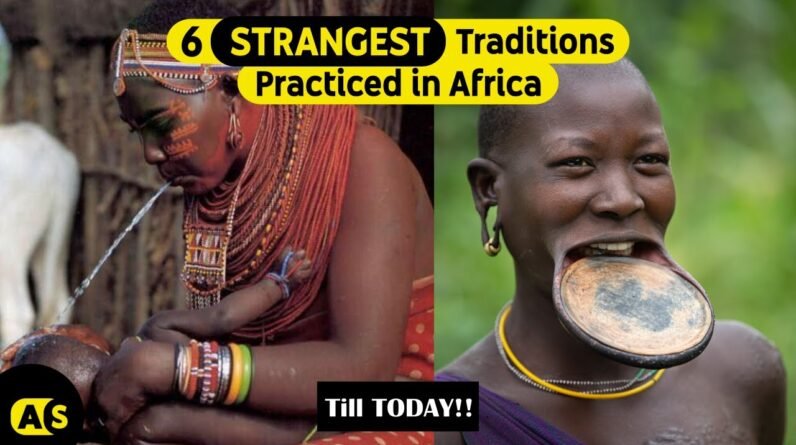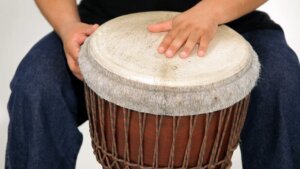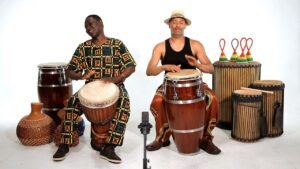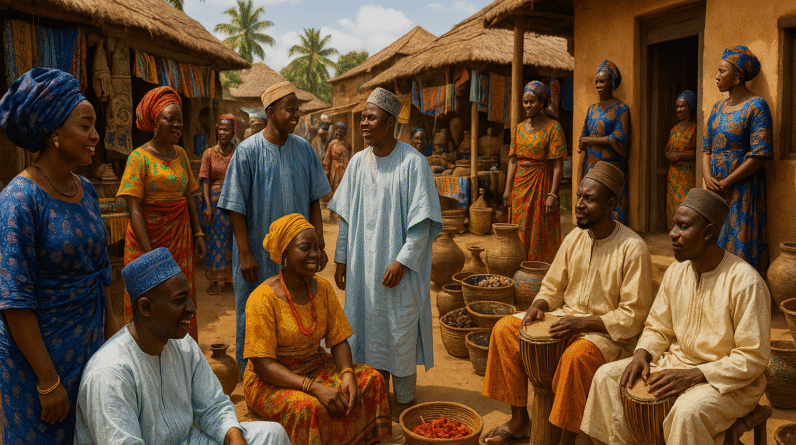
Facts About African Culture You Never Knew: Explore Rich Traditions
Africa is a continent of incredible cultural diversity, with its traditions, customs, and artistic expressions reflecting a rich history and a vibrant social tapestry. Here are some fascinating facts about African culture that highlight its complexity and beauty:
1. Linguistic Diversity: A Multilingual Continent
– Africa is home to over 2,000 languages, making it one of the most linguistically diverse regions in the world.
– Major language families include Afro-Asiatic, Nilo-Saharan, and Niger-Congo, with widely spoken languages like Swahili, Hausa, Amharic, and Yoruba.
– Swahili serves as a lingua franca in East Africa and is spoken by over 100 million people.

2. Music and Dance: The Heart of African Culture
– African music is characterized by its complex rhythms, percussion instruments, and call-and-response singing, with styles varying by region.
– Instruments like the djembe drum, kora harp, and mbira (thumb piano) are iconic in African music traditions.
– Dance is integral to celebrations, rituals, and storytelling, often involving energetic movements and symbolic gestures.
3. Traditional Clothing: Vibrant and Meaningful
– Traditional African clothing varies widely, with vibrant textiles such as kente cloth from Ghana, shweshwe fabric from Southern Africa, and bogolanfini (mud cloth) from Mali.
– Clothing often reflects social status, marital status, and regional identity. For example, Maasai beadwork symbolizes age, status, and beauty.
4. Oral Traditions: Storytelling Across Generations
– A key aspect of African culture is its oral traditions, used to preserve history, convey morals, and celebrate achievements.
– Griots, or traditional storytellers in West Africa, play a vital role in keeping oral histories alive through music and poetry.
– Many African folktales feature animals like Anansi the spider, teaching lessons about resilience, wit, and morality.
5. Art and Craftsmanship: Symbols of Heritage
– African art is deeply symbolic, featuring sculptures, masks, pottery, beadwork, and textiles that reflect cultural and spiritual beliefs.
– Masks are used in rituals to represent spirits, ancestors, or deities, often crafted with intricate detail and symbolic patterns.
– Wood carving and bronze casting, such as the Benin Bronzes, showcase the exceptional skill of African artisans.
6. Religion and Spirituality: A Blend of Beliefs
– Africa is home to a wide range of religious practices, including traditional African religions, Christianity, and Islam.
– Many traditional religions emphasize a connection to ancestors and the natural world, with rituals often performed to honor spirits.
– Syncretism is common, blending indigenous practices with elements of Christianity or Islam in ways unique to African communities.
7. Cuisine: A Delicious Mosaic of Flavors
– African cuisine is as diverse as its people, with staple foods like yam, cassava, millet, rice, and maize forming the foundation of many dishes.
– Popular dishes include jollof rice from West Africa, injera and doro wat from Ethiopia, and bunny chow from South Africa.
– Spices like berbere, peri-peri, and ras el hanout add bold flavors to African dishes.

8. Festivals and Celebrations: Vibrant Expressions of Culture
– Africa hosts numerous cultural festivals, such as:
– The Gerewol Festival (Chad and Niger), where Wodaabe men showcase beauty through dance and attire.
– The Lake of Stars Festival (Malawi), celebrating African music and art.
– The Timkat Festival (Ethiopia), a religious celebration marking the baptism of Jesus.
– Festivals often include music, dance, feasting, and traditional ceremonies, showcasing the richness of African heritage.
9. Community-Centered Living: The Spirit of Ubuntu
– The concept of Ubuntu, meaning “I am because we are,” reflects the communal nature of many African societies.
– Community ties are strong, with shared responsibilities in raising children, farming, and celebrating milestones like weddings and funerals.
10. Architectural Diversity: Traditional and Modern Styles
– African architecture ranges from traditional structures like mud-brick homes in Mali and grass-thatched huts in East Africa to modern skyscrapers in cities like Johannesburg and Nairobi.
– Great Zimbabwe and the Lalibela Churches in Ethiopia stand as iconic examples of Africa’s historical architectural ingenuity.
These facts about African culture illustrate its vast richness and diversity. Africa’s traditions, languages, and artistic expressions continue to evolve while preserving their heritage, making the continent a fascinating and dynamic part of the global cultural landscape.

Frequently Asked Questions (FAQ)
1. What is the purpose of the “Facts About African Culture” initiative?
The “Facts About African Culture” initiative aims to educate and inform individuals about the rich and diverse cultural heritage across the African continent. Our goal is to promote understanding, appreciation, and respect for African cultures through accessible and engaging information.
2. What type of content can I expect to find in this resource?
You can expect a variety of content including:
– Historical facts about different African civilizations.
– Cultural practices such as traditional dances, music, and festivals.
– Art and craft insights showcasing African artistry.
– Culinary traditions, including popular dishes and cooking methods.
– Languages and dialects spoken across the continent.
3. Is the information provided accurate and reliable?
Yes, we prioritize accuracy and reliability by sourcing information from credible scholars, cultural experts, and reputable publications. We continuously update our content to reflect the latest research and findings in African studies.
4. Can I contribute my own knowledge or experiences related to African culture?
Absolutely! We encourage contributions from individuals who wish to share their experiences or knowledge. You can submit your articles, stories, or insights through our dedicated submission page [link to submission page].
5. How can I stay updated with new facts and articles?
You can stay updated by:
– Subscribing to our newsletter, where we share weekly updates.
– Following us on social media platforms such as Facebook, Twitter, and Instagram.
– Visiting our website regularly for new articles and features.
6. Are there any age restrictions for accessing the content?
Our content is suitable for all ages. However, some topics may be more complex and could benefit older audiences. We recommend parental guidance for younger readers when exploring advanced cultural discussions.
7. How can I use the information for educational purposes?
The facts and resources provided can be used for:
– Classroom projects and presentations.
– Research papers on African culture.
– Cultural exchange programs and discussions.
– Informal learning for personal enrichment.
8. Is there a way to suggest new topics or questions for future content?
Yes! We welcome suggestions for new topics or questions. Please send your ideas through our feedback form [link to feedback form] so we can consider them for future updates.
9. How can businesses or organizations partner with you?
We are open to partnerships with businesses and organizations that share our mission of promoting African culture. Interested parties can contact us through our business inquiry page [link to business inquiry page].
10. Where can I find resources for further reading about African culture?
We provide a curated list of books, documentaries, and websites dedicated to African culture on our resources page [link to resources page]. These materials will deepen your understanding and appreciation of the continent’s diverse cultures.






